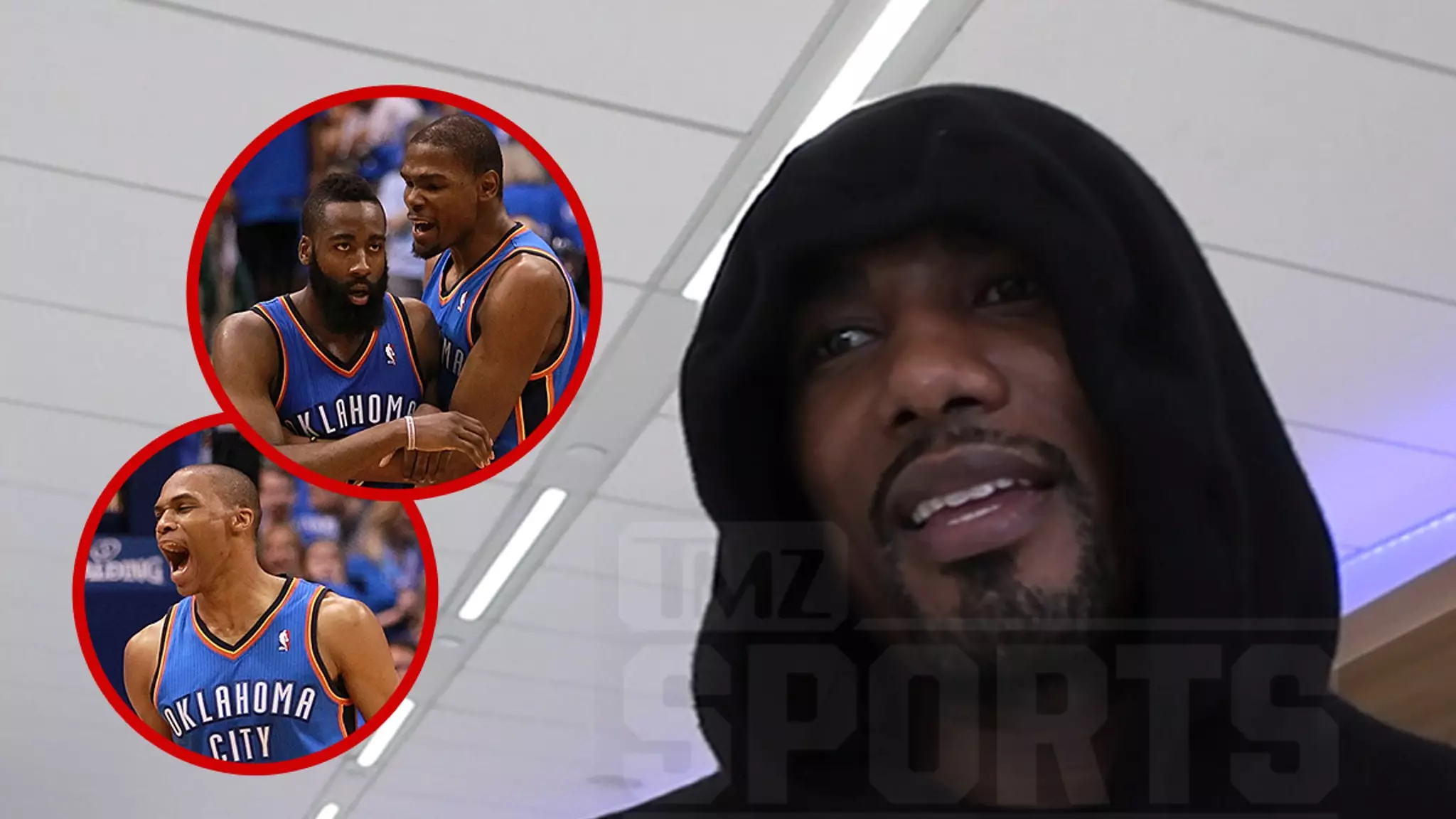In professional sports, the narrative of talent alone seldom determines a team’s fate; instead, it is the synergy, strategic cohesion, and shared vision that often separate champions from contenders. The Oklahoma City Thunder, a franchise historically lauded for their youth and potential, exemplifies a case where immense individual talent failed to culminate in the ultimate prize—unless, of course, you consider what might have been if their core had remained intact. Serge Ibaka’s assertion that Durant, Harden, and Westbrook could have amassed multiple championships underscores a critical reflection: the fragile nature of superteams and the importance of durability in chemistry.
During their early years, this trio demonstrated their potential by making the playoffs and even reaching the NBA Finals in 2012. These moments hinted at a future filled with titles. Yet, the departure of James Harden in 2012 marked a turning point—not just a roster change but a philosophical divergence on cohesion and commitment. Ibaka’s perspective suggests that the Thunder era could have yielded more banners had this confluence of talent stayed together. The reality is, basketball is a game of delicate balances; talent alone is not sufficient, but timing, chemistry, and shared goals amplify their impact exponentially.
What Might Have Been: The Power of a United Front
From an analytical standpoint, the intact Durant-Harden-Westbrook alliance represented an almost certain recipe for future dominance. Each player brought unique skills—scoring, playmaking, defense—but their combined potential was greater than the sum of their parts. The absence of Harden’s trade deprived the team of a critical piece—arguably the most complex of the three in terms of fit—but also an opportunity to build around their collective brilliance. Ibaka’s belief that they could have secured at least two more titles presupposes a level of resilience and tactical adaptability that teams often lack.
Moreover, the current iteration of the Thunder, with promising young talents, ignites optimism among fans and analysts alike. Ibaka’s confidence that this new core might scale heights comparable to or exceeding the previous one suggests that winning multiple championships isn’t solely predicated on individual stars but also on maintaining stability and growth. The modern NBA’s emphasis on continuity and chemistry indicates that these prospects could very well shape the league’s future—if managed wisely.
The Lessons from Missed Opportunities and Future Aspirations
Irrespective of the “what ifs,” Ibaka’s comments prompt a broader reflection on the importance of strategic patience and team-building. Sometimes, a franchise’s downfall isn’t due to lack of talent but inability—or unwillingness—to sustain it. The Thunder’s historical crossroads serve as a reminder that keeping a core intact could be as vital as acquiring superstar talent.
Furthermore, Ibaka’s personal ventures into music and culinary pursuits demonstrate the multidimensional nature of athletes today—how their influence extends beyond the court. Still, for Oklahoma City fans, the tantalizing possibility remains: with a blend of youthful energy, strategic management, and a bit of luck, their best days might still be ahead. The dream of multiple banners hanging in the arena continues to motivate, underpinning the importance of perseverance and unity in the pursuit of greatness.

